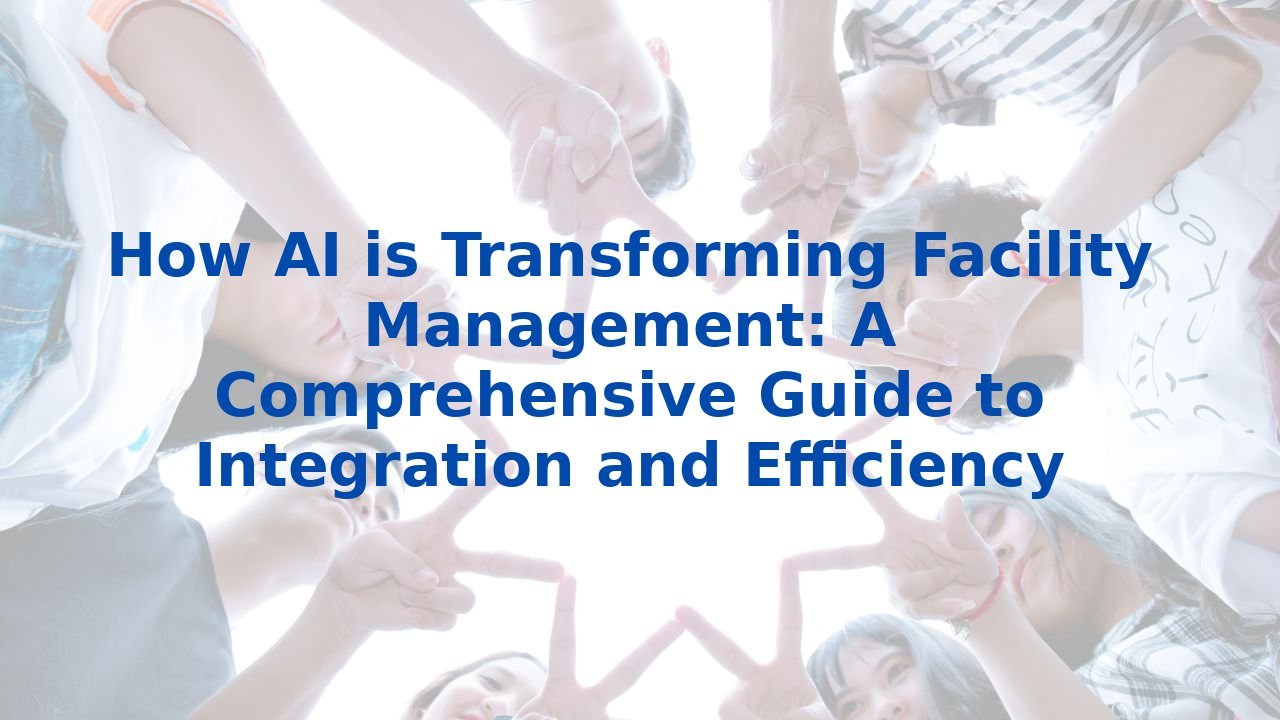How AI is Transforming Facility Management: A Comprehensive Guide to Integration and Efficiency
How AI is Transforming Facility Management: A Comprehensive Guide to Integration and Efficiency
Facility management has taken a pivotal turn, shifting from a series of independent tasks to an integrated operation vital to the overall success of modern organizations. In this era of technological innovation, artificial intelligence (AI) stands as a game changer. It not only enhances efficiency but also aligns facility management with broader business operations and sustainability goals. Let’s explore how AI drives this transformation and why organizations should consider integrating it into their practices.
1. Optimizing Space Utilization
One of the biggest challenges facility managers face is the effective utilization of space. Traditional methods often result in unnecessary waste and underutilized areas. Enter AI, a tool that leverages predictive analytics to assess space occupancy and employee preferences. By analyzing foot traffic and workspace usage, AI delivers actionable insights that empower facility managers to create flexible work environments capable of adapting to workforce dynamics. The result? Enhanced operational efficiency and reduced overhead costs.
2. Enhancing Energy Efficiency
Our world grapples with the ongoing challenge of climate change, and buildings play a significant role in contributing to greenhouse gas emissions. AI addresses this pressing issue by optimizing energy efficiency within facilities. By monitoring HVAC systems and overall energy consumption, AI can forecast occupancy behaviors and regulate energy usage for a balanced environment. Such predictive capabilities lead to a consistently comfortable atmosphere while simultaneously bolstering sustainability targets.
3. Predictive Maintenance
Facility management has long been characterized by a reactive approach—fixing issues as they arise, often at great cost. However, AI revolutionizes this paradigm through predictive maintenance. By analyzing historical data and identifying patterns, machine learning algorithms can forecast equipment failures before they occur. This proactive approach minimizes downtime, maximizes resource utilization, and drives down operational costs, creating a more resilient facility management operation.
4. Streamlining Operations
Imagine a world where mundane, repetitive tasks are automated, allowing facility managers to focus on strategic initiatives. AI-driven facility management systems integrate data from various sources, enhancing decision-making processes. These systems can automate approvals for work orders, schedule preventative maintenance, and optimize labor costs. The end result is a streamlined operation that not only boosts productivity but also elevates overall occupant satisfaction.
5. Driving Sustainability
Sustainability isn't just good ethics—it's good business. Organizations are increasingly aligning their operational goals with sustainable practices, and here, AI shines. With advanced analytics, facility managers can tap into real-time data to refine their energy consumption and reduce carbon footprints. Through AI, the dream of a more sustainable operating environment can seamlessly mesh with the larger objectives of creating a positive, productive workplace.
6. The Role of Employee Training in AI Implementation
One critical factor to consider when integrating AI into facility management is the training of employees. The sophistication of AI systems means they are only as effective as the individuals operating them. By investing in comprehensive training programs, organizations can empower their employees to interpret data insights fluidly and integrate AI-driven solutions into their daily tasks. This investment not only bolsters efficiency in facility management but also positions employees for success in an increasingly tech-centric workplace.
Conclusion
The integration of AI within facility management is transforming the operational landscape for organizations seeking to optimize space, enhance energy efficiency, and drive sustainability efforts. By harnessing AI-driven solutions, facility managers can not only streamline operations but also enhance the overall workplace experience for occupants. Investing in employee training is equally crucial, ensuring that teams are prepared to maximize the benefits of these innovations. As we move forward, the intersection where AI and facility management meet will undoubtedly lead to more efficient, sustainable, and productive workplaces—empowering organizations to achieve their broader business goals.



